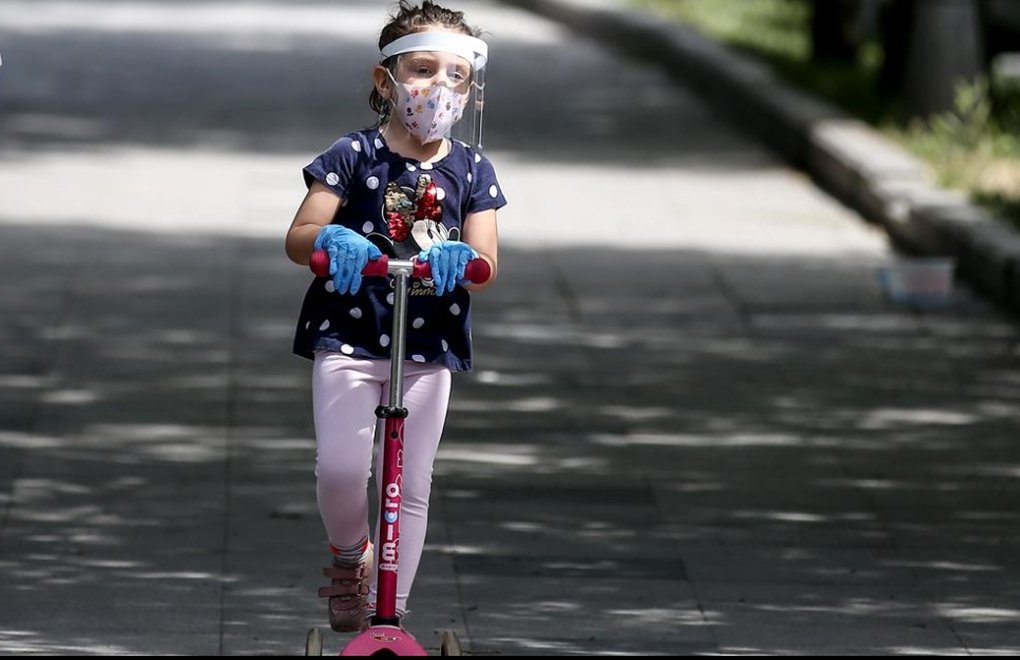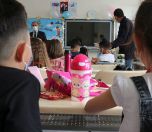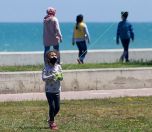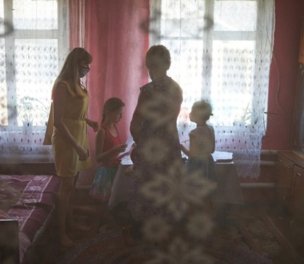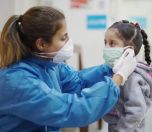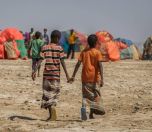Photo: AA
Click to read the article in Turkish
The Türkiye findings of the "Children's views on their lives and well-being during Covid-19" study were announced on Monday (December 19) in İstanbul.
The study on the impact of the COVID pandemic on children was carried out in 20 countries by Children's Worlds between the years 2020-2022.
Emre Erdoğan, Pınar Uyan-Semerci, Başak Akkan from İstanbul Bilgi University, and Gözde Durmuş coordinator of the Child Studies Unit (ÇOÇA) of the university were the researchers from Türkiye in this study.
"Children's Worlds report 2022," presenting the findings of the study in 20 countries globally was on the other hand published in November 2022.
This global report of the study adds up and evaluates findings from 20 countries.
It is noted in the introduction of the report that, "while various cohorts of the population had a differential experience of COVID, the deleterious impact on children and young people has been especially severe."
It is also noted that "Emerging research has shown that the pandemic has caused substantial disruption in family life, increased susceptibility to domestic violence, neglect, and compromised safety.
"There is also evidence that the pandemic has caused increased mental health problems including anxiety, depression, and psychological distress.
"Subsequent lockdowns have altered children's daily activities and time-use patterns, and restricted social interactions with friends and family.
"A defining feature of the pandemic was the closure of schools over various periods of time, which severely affected children's educational attainment and opportunities."
"Children's perspectives"
The report further notes that there is "a growing body of evidence on the impact of COVID-19 on children" but that "children's perspectives have not been reflected in the scientific literature."
Defining the Children's Worlds survey as "the largest and most comprehensive global study on childhood from children's perspectives," the report presents the study as an effort to understand the impact of the Covid-19 pandemic on children from children's perspectives and to understand the subjective well-being (SWB) of the children.
20 countries participated in the studyThe study was carried out in 20 countries (Algeria, Bangladesh, Indonesia, Colombia, Albania, South Africa, Türkiye, Taiwan, Chili, Germany, Belgium, Romania, Spain, Italy, Israel, Finlandia, Rusia, Wales, Estonia, South Korea) with the participation of 23,803 children. The field studies in Türkiye were completed in the summer of 2021 and 804 children aged 10-12 participated in the study, the majority of whom were from Istanbul. | |
Findings in Türkiye
Prof. Dr. Pınar Uyan Semerci, Prof. Dr. Emre Erdoğan, Dr. Başak Akkan from Bilgi University and Gözde Durmuş, coordinator of ÇOÇA of Bilgi University described the findings of the study in Türkiye.
Uyan- Semerci recalled that we passed through periods of crises one after another and that the pandemic had a great influence on us but that we have not started to live as if there was no pandemic and said, "We still do not know what its long-term consequences will be. We do not know what it means for the children."
She reflected that this study was carried out during the pandemic period which made it impossible for children to breathe and used both interviews and surveys from the perspective of the well-being of children.
She listed the themes within the study as follows: Closing of the schools, not being able to go out, being bored, anxiety-fear, and desire that COVİD will come to an end.
Uyan- Semerci said, "The conditions of the house was very significant in this period. The inside of the home is in face political, we also see this in what the children are telling. Especially with regard to economic issues. Another significant factor is the working conditions of the mother and father."
Uyan-Semerci cited what 11-year-old Ayşe said in their interview with her in the study.
"The internet connection was weak so we could not understand her at first. What she said later was all related to caring about her baby sibling. Or washing the dishes... We had to stop the conversation because her sibling cried. We had to start our conversation again five minutes later. Being able to go to school is in fact at the same time being able to be outside the burdens at home"
"Children were closed at homes for very long"
Gözde Durmuş recalled that an age-based lockdown was declared in March 2020 in Türkiye when the first Covid-19 case was reported and that the schools were closed during this period.
"Voluntary remote learning started but not much could be done in fact for those who could not access this. The children could go out partially in summer. Together with the EBA (Education Information Network) system, obligatory remote learning started. We sometimes had reduced classrooms. Lockdowns re-started for children in November 2020. Children were locked down for a much longer period than the adults."
"Children build and negotiate well-being at school"
Başak Akkan shared the findings of the study about the effects of the pandemic on children's education.
Akkan said, "What the children told us reflects that all children had problems following the lessons in remote learning.
"Besides the school is also the area where the children have relations with their classmates and teachers, where they build and negotiate their well-being. The children could not get access to this for a long time."
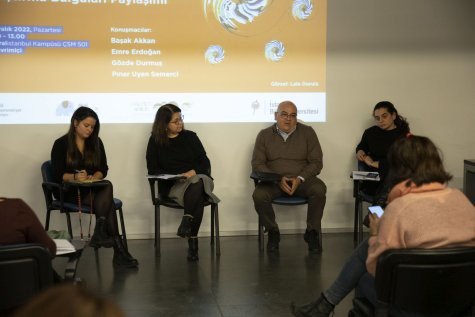
Türkiye: 2nd highest fear in children during pandemic
Sharing the quantitative findings of the study, Emre Erdoğan said that children from families of lower socioeconomic status were more severely affected.
Reflecting on the global findings of the study Erdoğan said, "The study revealed that a significant part of the children felt worried due to coronavirus in the period when the field study was carried out. 51 percent of the children participating in the study said their hands sweated when they thought about coronavirus and 44 percent said they were afraid to be infected with the virus while on third said that they felt worried when they heard the news on the television or other media about coronavirus."
Türkiye was the second country concerning the level of fear the children felt on average, coming next to Indonesia.
Children were asked the following question in the study:
"During the last month, how worried have you been about the following things in your life?"
a) By the Coronavirus situation
b) That I may get infected by the Coronavirus
c) The changes in my life as a student because of the Coronavirus situation."
Children from Türkiye were mostly worried about the Coronavirus, second about the changes in their life as a student, and nearly as worried about getting infected by the virus with their average level of fear being the second highest among the 20 countries.
Lower happiness during pandemic
"In all the 20 participating countries, children reported significantly lower happiness during the pandemic than before the pandemic" reveals the global study findings.
"The gap is diverse, depending on the country, and important in some countries.
"Children who reported meeting with friends every day online tended to display higher SWB scores than those meeting less frequently.
"In all countries, higher levels of feeling supported by friends were consistently associated with higher SWB.
"Further to that, higher levels of agreement with being listened to were associated with higher SWB in all countries."
(AÖ/PE)




